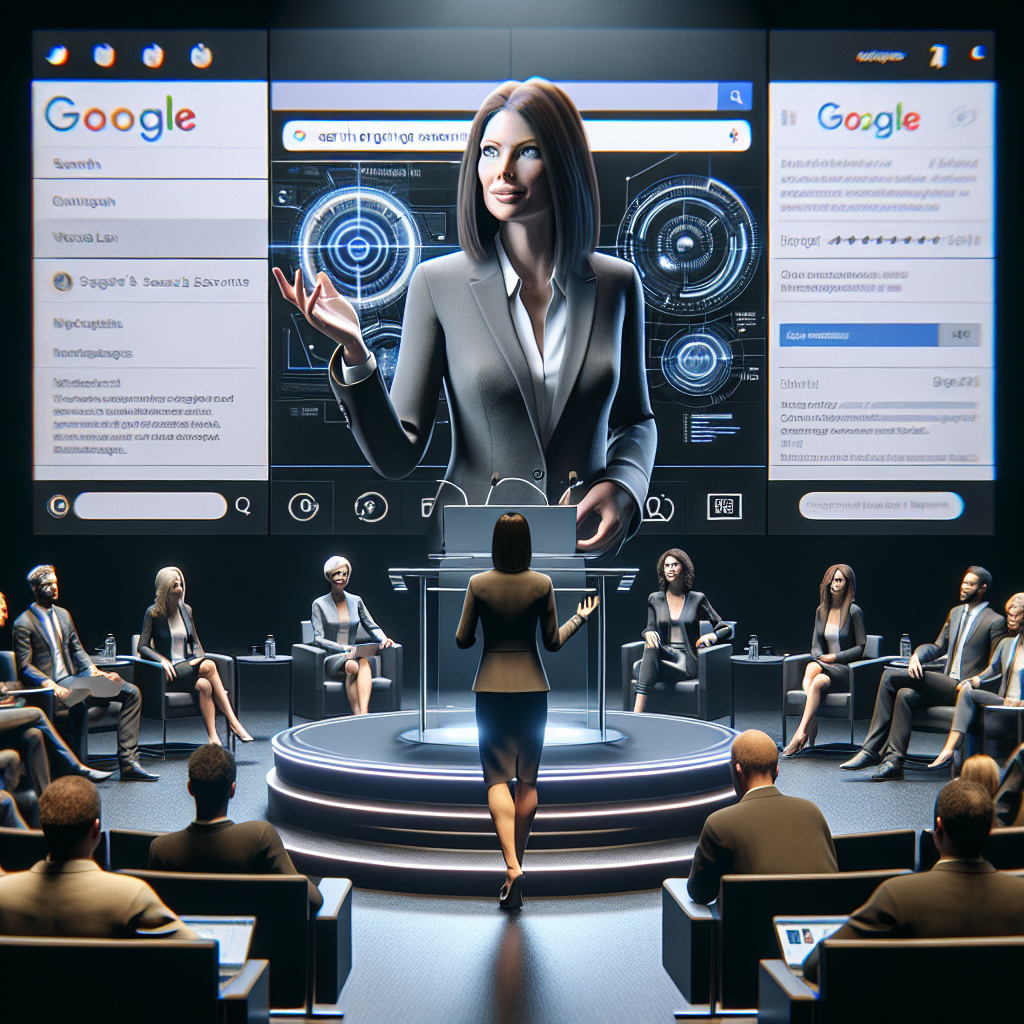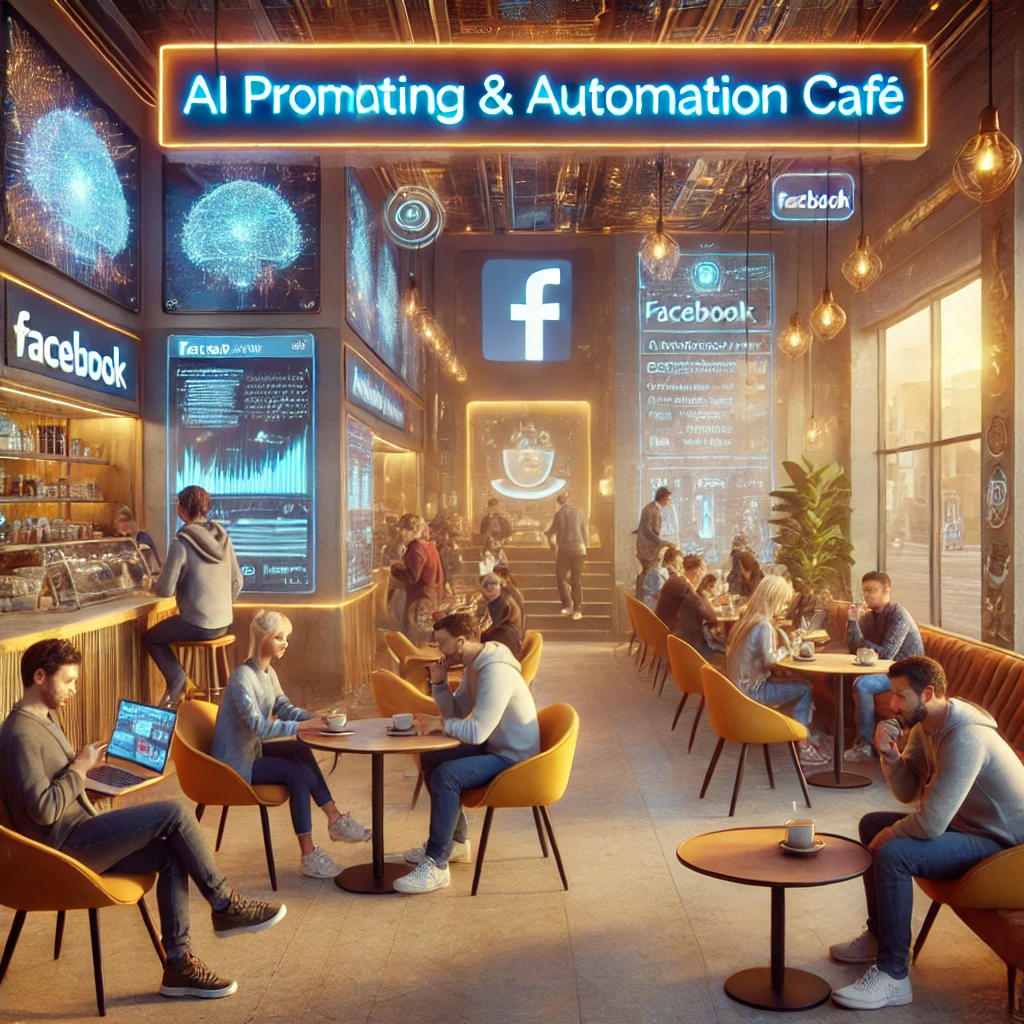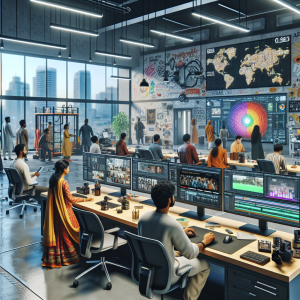Understanding Google’s AI Search Evolution
Google’s evolution toward an AI-powered search experience is making waves in the fields of SEO and digital advertising. Liz Reid, who was recently appointed as Google’s Head of Search, addressed some of these paradigm-shifting changes during a conversation at the Fortune Brainstorm Tech conference. Her insights offer a closer look at how Google’s AI search, specifically the Search Generative Experience (SGE), is poised to change the landscape of search engine optimization and advertising performance.
Reid’s statements serve to clarify Google’s vision for AI in search and offer an optimistic—though cautious—outlook for advertisers and SEO professionals alike.
The Introduction of AI in Google Search
Reid emphasized that Google is not replacing traditional search but rather enhancing it by incorporating generative AI into its processes. The AI-powered Search Generative Experience (SGE) aims to make complex queries more digestible by generating informative overviews drawn from web sources. According to her, this shift intends to “reduce user friction” by:
- Quickly delivering trustable, synthesized information
- Providing context-rich answers to nuanced queries
- Directing users back to high-quality websites for deeper exploration
This new hybrid system doesn’t aim to monopolize the user’s attention with an AI answer but instead works symbiotically with web content—building trust while still encouraging website engagement.
Why Is This Important?
It’s crucial to understand that Reid doesn’t view AI-generated results as a way to bypass traditional web content. Rather, she emphasized that high-quality web pages remain indispensable because generative AI needs credible sources to formulate its summaries. This creates an incentive for site owners and SEOs to continue producing trustworthy, in-depth content.
SEO Implications of Google’s AI Search
For SEO professionals, Liz Reid’s comments come as both a reassurance and a call to adapt. The organic search landscape isn’t fading away. However, its dynamics are shifting significantly.
Organic Visibility is Still Key
Reid noted that “people still click links in search results,” including those that appear within AI-generated answers. This highlights several strategic SEO takeaways:
- Your site’s authority and content quality are more vital than ever
- The structure and accessibility of your content influence AI summarization
- Featured links within the SGE can become new SEO real estate
In other words, generating long-form, well-structured content remains critical—perhaps even more than before. Search Engine Optimization in the age of AI must now also consider how your information might be interpreted and summarized by an LLM (Large Language Model).
Impact on Site Traffic
A looming concern among SEO professionals is that AI search answers will reduce organic clicks. Reid addressed this by explaining that user behavior studies show otherwise. People are interested in learning more and still click through to cited sources.
However, she acknowledged that certain types of queries, particularly quick fact-based queries, may indeed see a drop in clicks since users will find their answer immediately. SEO strategists may have to reassess target keywords and lean into content that offers deeper value rather than surface-level facts.
What Does This Mean for Google Ads?
Another major concern revolves around the longevity and effectiveness of Google Ads in the face of a changing SERP (Search Engine Results Page). With AI-generated answers becoming more prominent, where does this leave the ads?
Ads are Not Going Away
Liz Reid clarified that ads remain a priority for Google and are being integrated into AI-driven layouts. She emphasized Google’s longstanding commitment to connecting users with commercial content by stating, “We fundamentally believe in ads as a business and in our role to deliver commercial results.”
Key points Reid mentioned regarding ads include:
- Ads will appear in and around AI-generated results, clearly labeled
- Google is experimenting with formats that complement the AI experience
- Advertisers will find new opportunities as intent-rich queries become better understood
For digital marketers, this means that while ad placements may shift visually or contextually, their importance—and ROI potential—remains firmly intact.
Opportunities for Smarter Targeting
AI allows Google to better understand user intent and context within a search. This paves the way for:
- More granular targeting in ad campaigns
- Higher conversion rates from better-aligned audience targeting
- Real-time adaptations as AI learns from user behavior dynamically
Digital advertisers may need to collaborate more closely with content teams to ensure alignment between ad messaging and informational content that AI models use as context.
What Content Creators and Marketers Should Focus On
To thrive in this evolving ecosystem, Liz Reid’s insights suggest a roadmap for marketers and content creators.
1. Content Depth Over Surface-Level Answers
Sites should aim to produce content that adds real value—not just regurgitated facts. Think:
- Comprehensive guides
- Expert interviews and insights
- Case studies and data-backed articles
The more useful and comprehensive your content, the more likely it is to be chosen (and linked) in generative AI answers.
2. Structured Data and Schema Markups
Leveraging structured data helps Google better understand your content. With AI systems parsing semantic evidence, it’s important to:
- Add schema markups wherever applicable
- Ensure meta descriptions and title tags are optimized for clarity
- Use a clear internal linking structure to indicate topic clusters
3. Continued Focus on E-E-A-T
Expertise, Authoritativeness, and Trustworthiness—and now the added concept of Experience—are still vital. Reid echoed that generative AI leans on these principles to evaluate and recommend content. Ensure your site meets E-E-A-T standards by:
- Showcasing credentials and author bios
- Getting cited by reputable third-party sources
- Keeping your content up-to-date and factually accurate
Looking Ahead: The Hybrid Future of Search
Reid’s perspective suggests that the future of search isn’t AI vs. websites, but AI + websites. Google’s AI-generated overviews aren’t meant to be end destinations. Rather, they serve as smart guides pointing users toward high-quality content that satisfies their intent.
SEO and Ads Will Coexist With AI—Not be Replaced
As generative AI reshapes scalability and personalization, marketers must adapt—but not retreat. Reid invites SEOs and advertisers to work with the changing SERP rather than against it.
Invest in Trust-Building and Adapt Your Strategy
Credibility and adaptability are the twin pillars of SEO and Ad success in an AI-powered world. Liz Reid’s insights reassure us that:
- Content quality and brand trust will determine visibility
- AI-enhanced search will benefit users who want faster and more reliable information
- Ads will continue to evolve alongside organic and AI results, offering innovative placements
Final Thoughts
Liz Reid’s discussion couldn’t come at a more pivotal time for the digital marketing world. As AI redefines how search operates at its core, both SEO and advertising strategies need to evolve—but the fundamentals remain the same.
Build value. Stay relevant. Offer trust. If website owners and marketers focus on these essentials while adapting to new formats and structures, they will remain visible and successful in Google’s AI-enhanced ecosystem.
The coming changes are not an obstacle but an invitation—to redefine how we show up in search results and how we connect with users in richer, more impactful ways.






